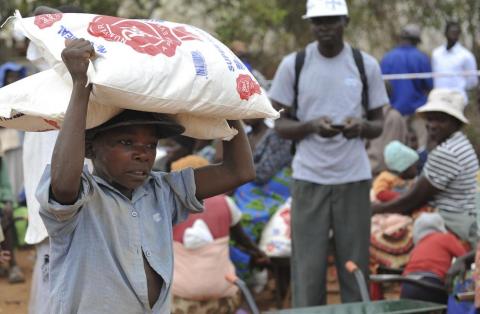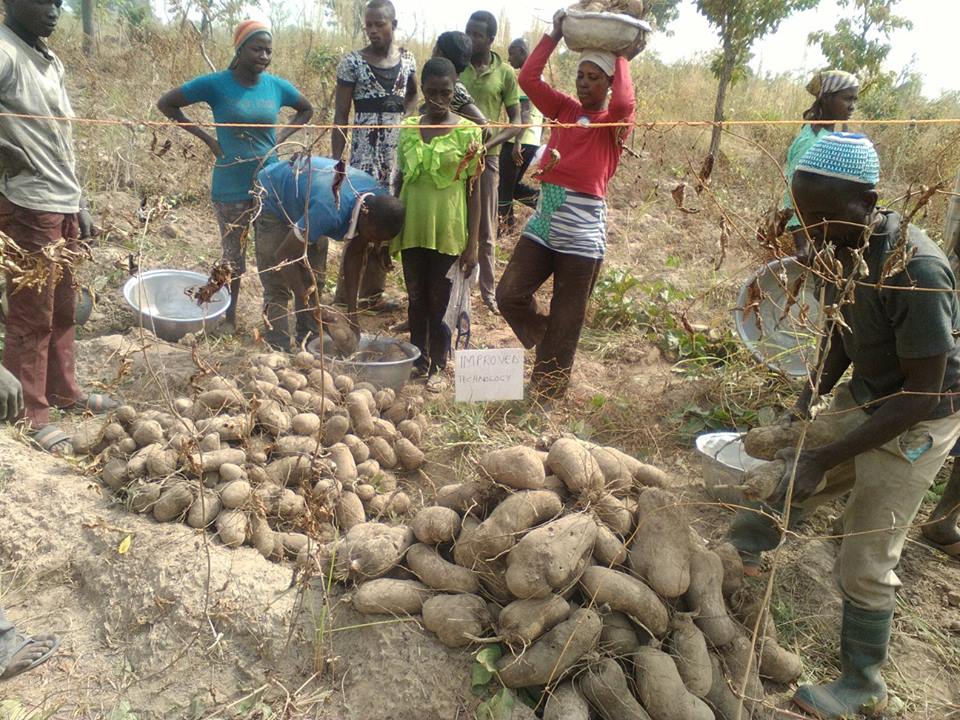As the proverb says, bread is the staff of life, the southern African country Mozambique knows it well.
Four years ago, Rudy Manuel, a Mozambican youth, could not imagine that his father’s farm, located in Xai-Xai district in the Mozambique’s southern province of Gaza, can reach a yield of up to 4.8 tons of grain per hectare.
Before cooperating with China WanBao Co., Ltd., in 2011, Manuel’s 42-hectare farm only had the capacity of producing averagely 1.5 tons of grain per hectare.
It is not an exception in Mozambique, which possesses a large alluvial plains as arable land, but is still plagued by a food deficit of nearly 300,000 tons of grain, constrained by its primitive farming techniques.
More than half of the nation’s 24-million population are still living below the poverty line, while the unemployment rate remained above 27 percent, according to the data released by the African Development Bank (AfDB) in 2012.
Agriculture development and job opportunity creation are always among the most important issues for the Mozambican government.
The arrival of Chinese help, with their advanced agricultural technologies and projects, has helped to make a change.
Agricultural cooperation between China and Mozambique started as early as 2007, when the first batch of agricultural technology demonstration centers in Africa was established in Maputo Province. It was also ranked as the first of its kind in Africa, having trained over 1,000 Mozambicans until October, 2015.
Since then, the Chinese have been providing high yielding seeds and equipment to the southern African country, as well as irrigation facilities and techniques, water harvesting and preservation to ensure an all-year round farming.
In 2011, Wanbao Grains and Oils, an agricultural product processing company based in Xiangyang, China’s Hubei Province, established a large-scale rice farm on 20,000 hectares in Gaza Province of Mozambique.
In three years, a total of nearly 200 million U.S. dollars have been invested in the project, mainly in infrastructure construction, machinery and equipment procurement, irrigation and electricity.
Sergio Chichava, a researcher at Mozambique’s Institute of Social and Economic Studies, told Xinhua that, if things went well, the Chinese projects could help solve the country’s food crisis.
Ernesto Paulino, the provincial director of Agriculture Department in Gaza Province, affirmed that WanBao project has helped to improve local farming productivity and increase employment, thus improving local people’s livelihood.
Another successful example of China-Mozambique agricultural cooperation is the Mozambican branch of China-Africa Cotton Development Co., Ltd., which locates in the country’s second-largest city, Beira.
Its project provides guidance to farmers who signed agreement with the company to carry out the cotton cultivation, and process cotton after the acquisition.
Currently, the China-African Cotton Mozambique company has become one of the three largest cotton companies across the nation, providing nearly 1,000 job opportunities and cooperating with about 50,000 households for cotton plantation.
Chichava told Xinhua that the project has helped to increase local farmers’ income and improve people’s living conditions.
Tian Zeqin, the director of China-Mozambique Agricultural Technology Demonstration Center, told Xinhua that most of China’s high yielding seeds and advanced techniques are suitable for Mozambique, and it could greatly speed up the country’s agricultural development if applied widely.
Culled from Xinhua











